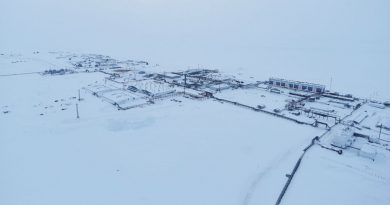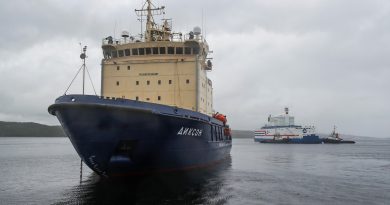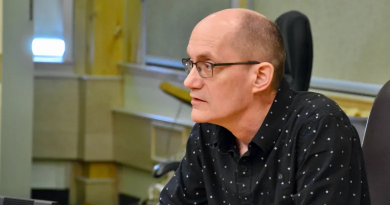Arctic Canada: Nunavut businesses, private sector struggle to find space in closed economy
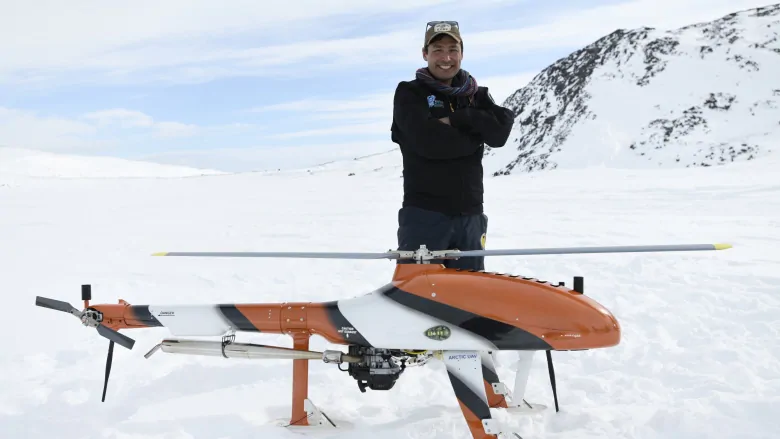
This story is part of The COVID Economy, a CBC News series looking at how the uncertainty of the coronavirus pandemic is affecting jobs, manufacturing and business in regions across Canada.
Faced with COVID-19 related cancellations at his aerial drone imaging company, Iqaluit business owner Kirt Ejesiak started making calls to researchers, mining companies, and anyone else who might be in need of a commercial drone this summer — and more specifically, in need of someone to operate it in Nunavut.
As part of an ongoing public health emergency, travel into the territory has been banned for non-residents since late March.
“We started banging on doors immediately when we heard COVID[-19] was coming,” said Ejesiak, owner of Arctic UAV. “Calling to say, ‘We’re here, you can’t travel, how about we do that for you.'”
Ejesiak’s team recently travelled by snowmobile to De Beers Canada’s Chidliak project, 120 kilometres northeast of Iqaluit, to do survey work at the diamond project.
“It’s a way to create local jobs,” Ejesiak said.
Despite his efforts to pivot to a curtailed economy, pandemic closures are a challenge for Arctic UAV and independent Inuit-owned operations like it. One challenge Ejesiak says, is the need to finance annual sealift orders — and soon — or risk losing a season.
New council creates voice for Inuit in business
Ejesiak is the interim director of the Inuit Business Council, formed by private business owners in Nunavut who were concerned entrepreneurs would be forgotten amid COVID-19.
“There are companies that own large pieces of equipment, or they own vessels or large hotels. Their loan payments don’t stop just because of mandatory shutdowns,” he said. “Collectively we need to work out a way for them to stay alive.”
The council is asking for interest-free lines of credit, of up to $250,000 if needed, because not all Inuit businesses have been eligible for federal loans, Ejesiak said.
In Arviat, Bobby and Angelina Suluk of A&B Suluk Translating Services are struggling too. Before the pandemic, they were busy doing Inuktut translation for government, Inuit organizations and southern businesses.
“Since the pandemic started, everything has stopped,” Bobby Suluk said. “The pandemic has really affected our income.”
But Suluk decided not to apply for business funding. He found the process complicated and felt his company wasn’t eligible because its expenses are low and revenue goes toward his household — “buying food and personal items for the family,” he said.
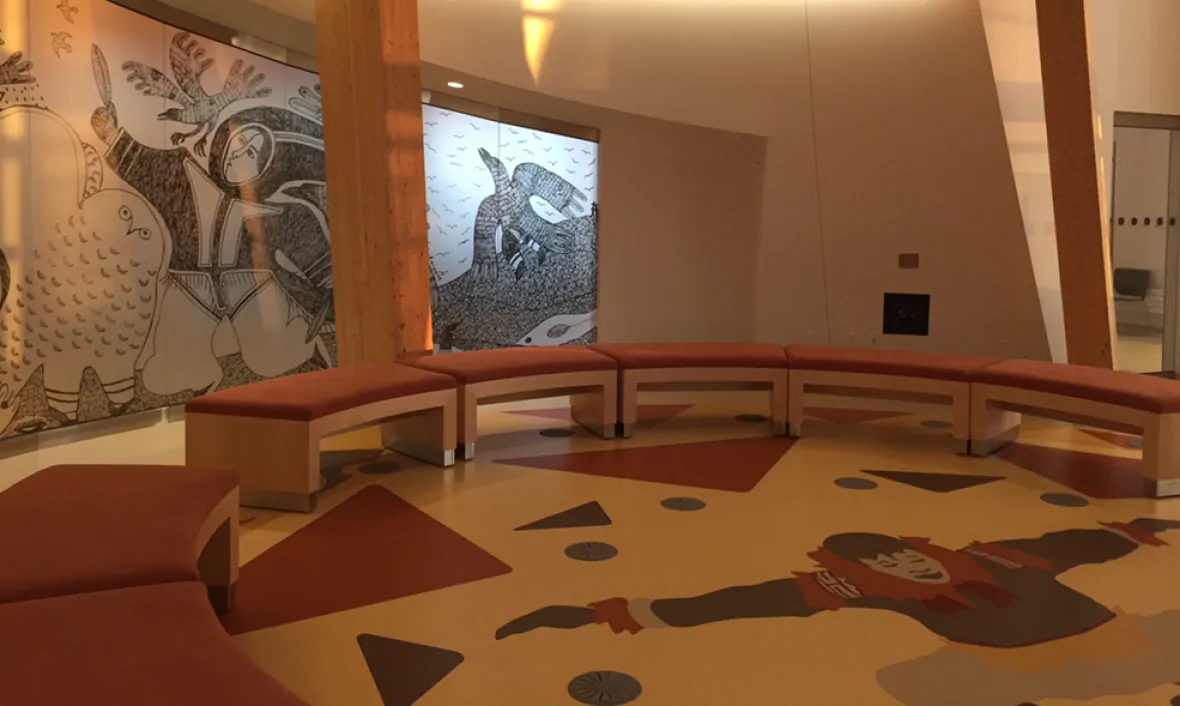
Instead of business income, the Suluks said they are relying on pension payments and individual pandemic funding for Nunavut beneficiaries they were eligible for through the Kivalliq Inuit Association.
“It’s not as easy as sending the application and waiting for a cheque,” he said. “It’s a lot harder to obtain the money that they claim is available to Inuit business owners.”
Chamber of commerce says money is slow coming
While the Canada Emergency Response Benefit can be received quickly, it hasn’t been so for businesses represented by the Kitikmeot Chamber of Commerce, says executive director Valter Botelho-Resendes.
“They were able to get it into the employees hands quickly but the government is doing a very bad job getting it into the small businesses hands,” he said, adding that northern businesses had to lay off a majority of their staff because owners couldn’t make the payroll.
In March, the government of Nunavut issued $5,000 grants to small business owners, including artists and harvesters.
But as of last week, Botelho-Resendes said businesses who qualify for federal loans of up to $40,000 hadn’t seen any payments, while others were declined loans because they didn’t meet criteria.
Botelho-Resendes met with officials from Nunavut’s Department of Finance and Canada’s Department of Northern Affairs, and was hoping to see “money hitting the ground” by the end of this week.
A drop in government and business travel has hit Kitikmeot communities the hardest, he said. The chamber is concerned some hotels will close, having seen around a 90 per cent loss in revenue.
In Cambridge Bay, a cancelled cruise season marks a smaller loss. Last year the hamlet earned $50,000 from visits by five large passenger vessels. Back in the Qikiqtaaluk region, where more ships visit, the hamlet of Pond Inlet is preparing to lose over $260,000 from would-be cruise visits.
“We think this year is a writeoff,” Botelho-Resendes said.
Airlines balance losses, obligation to communities
When COVID-19 restrictions are fully lifted, business travel for industries like mining and tourism is unlikely to return to usual, said Sébastien Michel, a board member for the Northern Air Transport Association.
In Nunavut, airlines are considered essential for fly-in communities.
During a meeting of the Standing Committee on Indigenous and Northern Affairs on May 29, Michel told members of parliament it is not the responsibility of small and private airlines to support essential service delivery to remote northern communities at a financial loss.
“Northern operators are often the only means to provide access to medical supplies and resources,” Michel said. “To ensure adequate service, northern operators are compelled to operate flights that a profit-oriented air carrier would cancel.”
The federal government put $5 million toward Nunavut airlines, and the territorial government continues to pay for unused medical and duty travel.
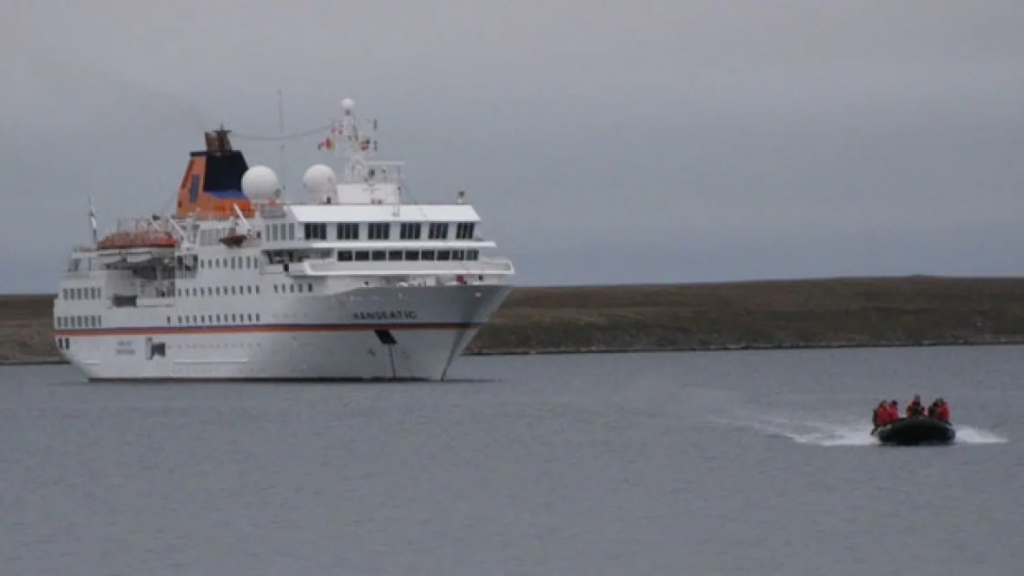
But regardless of where it comes from, deputy minister for the Nunavut Department of Economic Development Bernie MacIsaac acknowledged that relief money isn’t going to cover business losses.
“It’s to allow them to pay their bills and to reopen,” he said. “It’s a lot easier to reopen the economy if the base industry is still there, rather than having companies shut down or have to start from scratch again.”
A plus for Nunavut’s government-based economy, MacIsaac said, is that staff in federal, territorial and municipal positions have all kept their jobs. Nunavut mines sent workers from the territory home with pay, to avoid contact between communities and southern staff on rotation.
Keeping jobs available in the private sector — in mining, tourism, construction and fisheries — is a government priority, he said.
“We’ve invested a lot of time and a lot of money over the years in helping companies get off the ground,” he said, adding that he wants to protect that investment.
Construction carries on for Aqsarniit Hotel
To finish its new Aqsarniit Hotel in Iqaluit by fall, the Qikiqtaaluk Corporation is hiring carpenters throughout the Baffin region.
The Inuit birthright company is working with the Nunavut Development Corporation and its own subsidiary, Qikiqtaaluk Industry Ltd., to recruit Inuit carpenters for the pilot project.
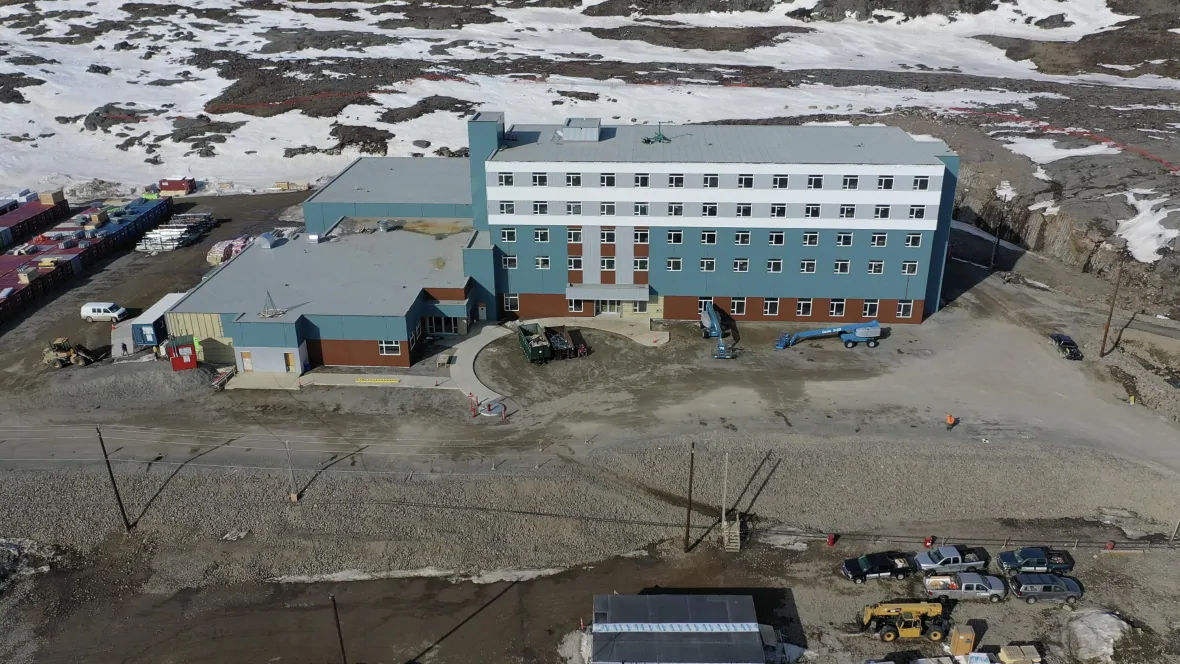
“The suffering of the economics in our region is much more than just Iqaluit,” said the hotel’s project manager Sheldon Nimchuk. He wants to include those carpenters in a group of 40 to 60 workers who could be on site by July.
More than 500 construction workers are expected to come to the territory this season, isolating for two weeks first at the territory’s expense.
The government has 50 projects scheduled for 2020, which include needed repairs to water infrastructure, work at airports and schools, and new public housing units in 10 communities. It’s $600 million in capital projects, Community and Government Services Minister Lorne Kusugak said.
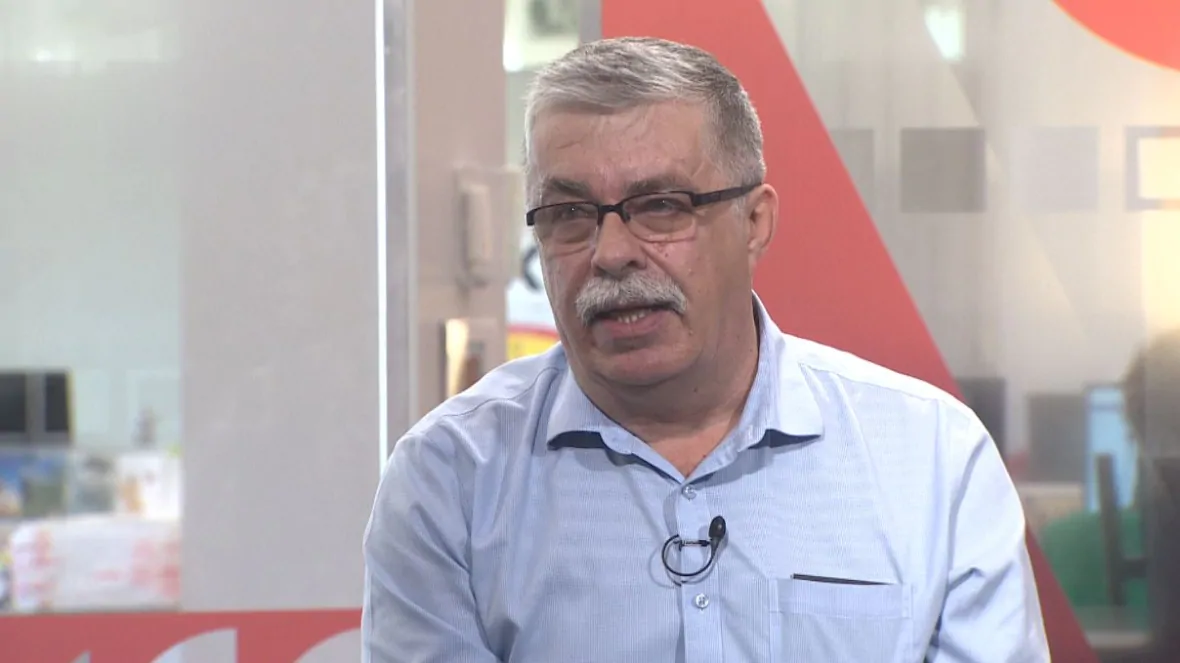
Nunavut’s Financial Management Board continues to approve special warrants in the millions for pandemic spending, including $5.2 million spent as of June 1 to isolate residents and medical travellers.
For now, deputy minister MacIsaac says he’s counting on a new momentum.
“I’m hoping that all this extra money that’s being poured into the territory, that some of it will continue after,” he said. “That’s the challenge — to preserve what we had and to continue growing like we were growing before the pandemic.”
Related stories from around the North:
Arctic: Roundup of COVID-19 responses around the Arctic, Eye on the Arctic
Canada: Scrapped 2020 cruise season will cost communities in Nunavut, Canada almost $1 million, Eye on the Arctic
Finland: Finland joins other Nordic countries in virtual tourism due to pandemic, Yle News
Greenland/Denmark: COVID-19 could delay Kingdom of Denmark’s Arctic strategy, Eye on the Arctic
Iceland: Iceland talks COVID-19 with Canada, Greenland foreign ministers, Eye on the Arctic
Norway: Norwegian Arctic wilderness tourism hit particularly hard by coronavirus, The Independent Barents Observer
United States: Airline shutdown creates new challenges for rural Alaska, The Associated Press

